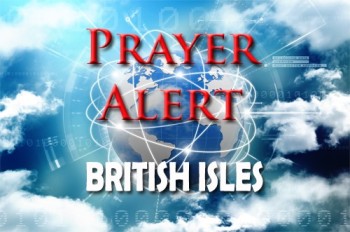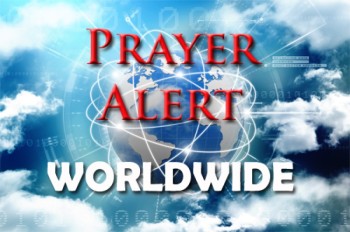Displaying items by tag: Flooding
Pakistan: nearly half a million displaced by floods
Catastrophic flooding has displaced nearly half a million people in Pakistan’s Punjab province after days of torrential monsoon rain swelled three major rivers. More than 2,300 villages have been inundated, affecting over 1.5 million residents, including parts of Lahore. In what authorities describe as the largest rescue effort in Punjab’s history, 481,000 people and 405,000 livestock have been evacuated using more than 800 boats and 1,300 rescue personnel. Over five hundred relief camps have been established to provide shelter and care for displaced families. The floods have killed at least thirty people, adding to the hundreds of lives lost during this year’s unusually heavy monsoon season. But with the rains continuing, authorities have warned that the crisis is far from over.
Climate change: government plans are ‘dangerously inadequate’
A scathing new report from the Climate Change Committee (CCC) warns that government efforts to protect people and infrastructure from the impacts of climate change are dangerously inadequate. The report found that of 46 key adaptation measures, none are rated ‘good’, and progress has been glacial or even regressive. Despite climate threats already affecting homes, farmland, railways, schools, and hospitals, adaptation remains a low priority. Forecasts show that by 2050, over half of England’s best farmland and critical infrastructure will be at flood risk, while heat-related deaths could exceed 10,000 annually. Businesses, farmers, and scientists are calling for urgent action, stressing that ignoring adaptation now will bring national security risks and economic costs. The Government may claim that it is prioritising climate resilience, but budget cuts - including to flood defences - cast doubt. Experts, pointing to successful models abroad, are urging clearer targets, better planning, and private sector engagement to prevent worsening climate disasters.
Indonesia: severe flooding in and around Jakarta
Severe flooding in Jakarta and surrounding areas has displaced thousands and caused significant property damage. Torrential rains since 3 March have raised water levels by up to three metres, submerging over a thousand homes and vehicles. The capital’s governor has declared a heightened alert, ordering water pumps and cloud seeding operations to reduce rainfall. Bekasi has been hit hardest, with floodwaters inundating a hospital, forcing patient evacuations and causing power cuts. Rescue teams are using boats to assist trapped residents. This is Jakarta’s worst flooding since 2020, when record rains claimed sixty lives. Authorities are closely monitoring the situation and coordinating relief efforts, including evacuations, food distribution, and emergency services. The weather agency has warned that heavy rains may persist until 11 March, potentially worsening conditions. Residents are urged to remain vigilant and adhere to guidance from local authorities.
East Africa: heavy flooding causes many deaths and displacements
Heavy flooding in Kenya, after weeks of intense rain and flash floods, has left at least 103 people missing, with 71 confirmed dead. Most of the missing are from Mai Mahiu, near Nairobi, where on 29 April flooding near a railway bridge, caused by a clogged tunnel, caused at least 45 deaths. The country’s president William Ruto has ordered the military to help search and rescue efforts. Nearly 191,000 Kenyans have been displaced by the floods, which are said to have been exacerbated by the effects of El Niño. The government has established 52 displacement camps to provide temporary shelter, but with more rain forecast the situation may worsen. The floods have affected other countries: a week ago, Tanzania’s president said that 155 people had been killed and 200,000 displaced. See
Russia: worst flooding in decades causes mass evacuations
The southern Orenburg region in Russia is facing its worst flooding in decades, with 55 cities and towns affected and thousands evacuated. Entire neighbourhoods have been submerged, with volunteers and emergency workers rescuing trapped individuals and animals. The crisis, which caught authorities off-guard, is likely to worsen, as the Ural River is expected to rise even higher. A state of emergency has been declared; the damage to houses is severe, with estimates exceeding 21 billion rubles (£178 million). The flooding, triggered by snowmelt and rainfall, breached protective dams, leading to thousands of evacuations. There are claims that the authorities knew the likelihood of flooding in advance, but took no preventative action. Some promises of compensation and dam reconstruction have been made, but locals remain disillusioned, demanding accountability for the crisis.
Australia: More life-threatening floods
In March floods killed 20 people and 60,000 were evacuated. On 2nd July, tens of thousands of people were again fleeing flash floods in a life-threatening emergency. By 4th July, 70 flood evacuation orders were in place across New South Wales, affecting 32,000 people, with further alerts expected as a trough of 100km/h winds and heavy rainfall moved north. Some areas had more rainfall in three days than Melbourne, Canberra and Hobart have in a year. A charity worker reported, ‘Everybody is in shock’. Boats took food and water to those stranded in upper rooms of homes. By July 7th, the week-long deluge affecting 60,000 residents in greater western Sydney continued to threaten communities farther north. Pray for the emotionally exhausted rescue workers to have the stamina and wisdom to know where they are most needed. Pray for the evacuees and those fearfully expecting evacuation orders.
Canada: BC state of emergency
A state of emergency has been declared in British Columbia, where torrential rain and mudslides have destroyed roads, cut off several mountain towns, and displaced 18,000 people. At the time of writing there has only been one death, but the death toll will probably rise as the Canadian province grapples with what its premier, John Horgan, called a once-in-500-year event. Pray for neighbours and authorities working to save people and animals, secure supply chains, and ensure that essential goods and emergency services can reach hard-hit communities. Pray for the thousands of people forced to leave their homes in regions under evacuation orders. Ottawa is sending hundreds of air force personnel to aid the recovery, and thousands more are on standby. Pray for the affected towns in remote mountain areas with limited access and freezing temperatures. Many are cut off by road closures and mudslides.
Germany: Ahr valley region reconstruction
The flood disaster in the Ahr valley was three months ago. Much has been achieved but reconstruction will take a long time. Many houses had to be demolished and over thirty may not be rebuilt. Houses that could remain standing have been completely cleared and left empty to dry out. Large parts of the natural gas network were destroyed, and many oil heating systems in the affected houses no longer work. The government is working flat out to find solutions to the problems and to be prepared for the upcoming winter - including providing mobile gas supply systems and oil tanks, the use of mini-power plants and the purchase of a Tiny House for residents who need accommodation for the winter due to a lack of heating. The electrical power supply has not yet been completely restored and there is a lack of craftsmen and building materials for the renovation and reconstruction work. See
Italy: flash flooding and hurricane
An official In Catania, Sicily, called the situation ‘very critical’. Streets are completely flooded, and a red alert - the highest level warning - has been issued for flooding in northeast Sicily and the southwest region of Calabria. A depression on the Mediterranean is causing disturbed weather conditions in southern Italy. Over two feet of rain fell in half a day - never seen before. While storms continue, a Medicane (rare Mediterranean hurricane producing 5 metre waves) meanders south, with 150mm of rain predicted for Friday with localized areas receiving higher amounts. Schools and businesses are closed, and people are advised to stay indoors and banned from areas prone to landslides. Fire and rescue have had hundreds of callouts in one day. See alsowww.bbc.co.uk/news/world-europe-59048809
India: floods and landslides
Record-breaking rains and heavy flooding have killed over 150 people in India and Nepal in recent days. 77 have been killed, 22+ injured, and 26 are missing across Western Nepal; at least 46 have died in Uttarakhand, and 27 bodies have been recovered in Kerala. 11 teams from the National Disaster Response Force also evacuated 6,500 people to 184 relief camps. Crops have been destroyed, roads are waterlogged, bridges washed away, vehicles submerged, and houses reduced to rubble in Kerala, home to 33 million people. The flooding comes in the middle of a religious pilgrimage when Hindus journey to Uttarakhand. 3,000 pilgrims were evacuated from a barge on the Sarda River, which had overflowed. Meanwhile more than 200 families are currently in a further 26 evacuation camps across the state. Heavy rainfall is forecast to continue for the coming days, and residents are urged to stay indoors.









